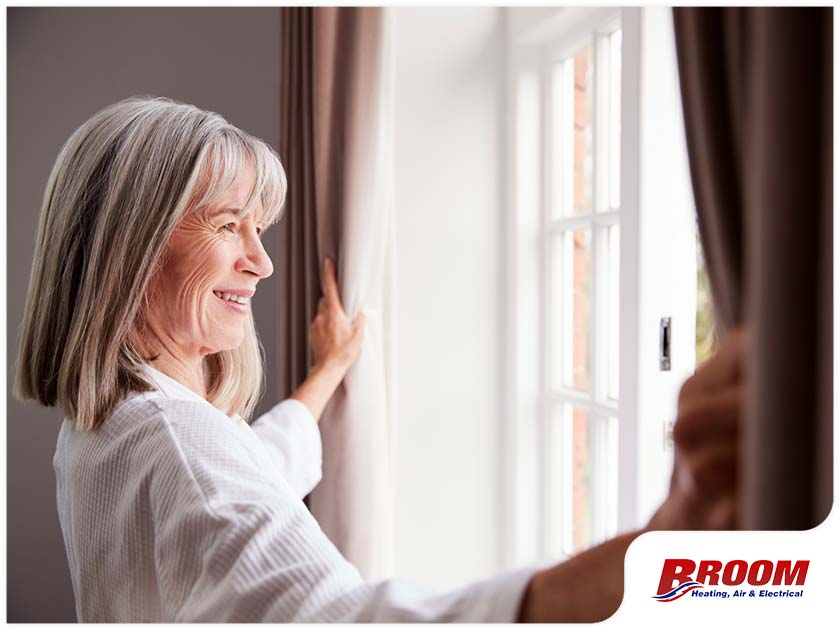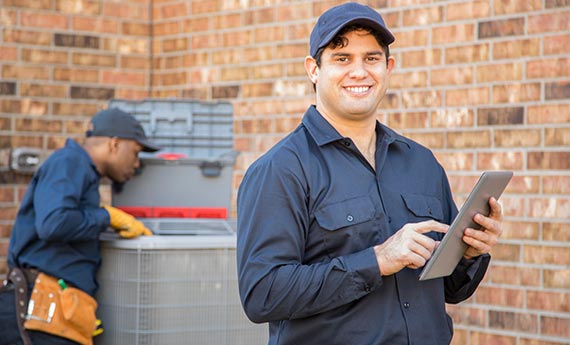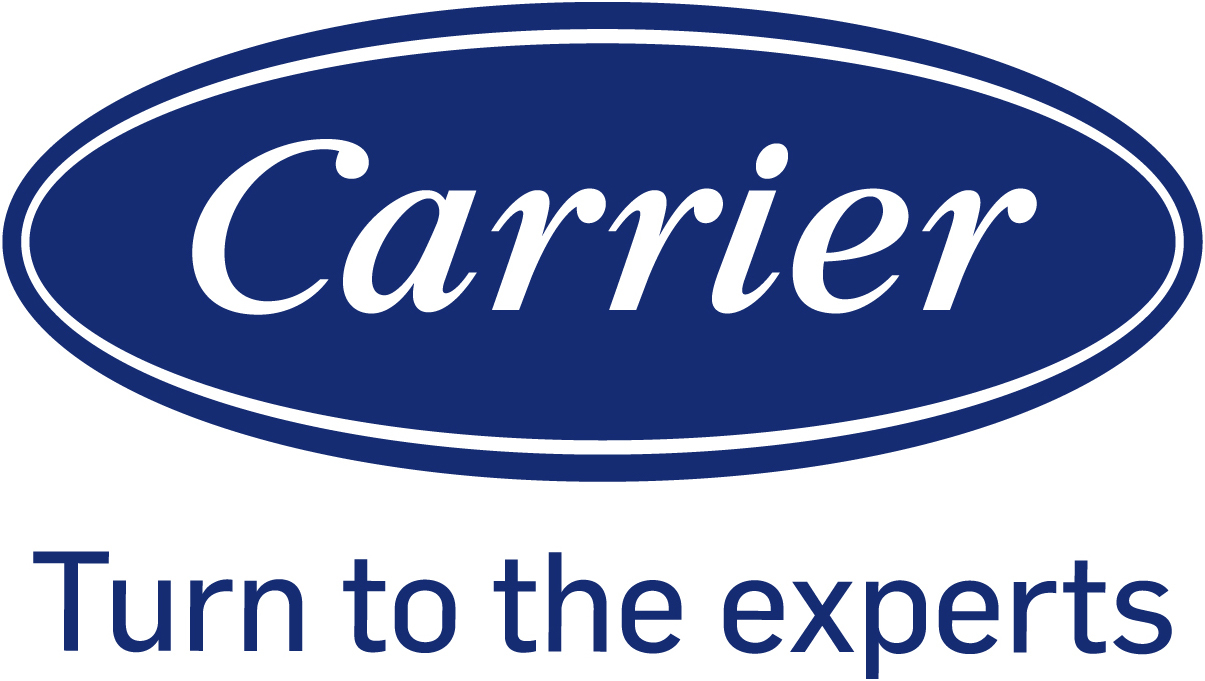Allergy season is just around the corner, which is why it would be a good idea to have a technician inspect your HVAC system or air conditioning unit. As a rule of thumb, your HVAC or AC unit should be inspected and cleaned by HVAC specialists at least twice every year, ideally in spring and fall. Without routine maintenance, dust and other indoor pollutants can cause allergy flare-ups and lower indoor comfort.
What are the HVAC maintenance tasks you need to finish before the start of spring? Here’s a checklist:

- Check if there’s anything blocking the air vents – Blocked air vents prevent your HVAC system from distributing cool air throughout your interior evenly and increases the strain on your HVAC system. Check if dust has accumulated in the air grilles, and move carpets, rugs, and furniture away from the air vents.
Important note: Some homeowners shut the air vents to prevent warm or cool air from flowing into rooms that being used. Keep in mind, however, that you shouldn’t close more than 20% of your HVAC system’s air vents. If you have a lot of rooms that aren’t being used, it makes more practical—and financial sense—to install a zoned HVAC replacement. This type of HVAC system uses dampers in the ductwork to redirect air to specific rooms, creating temperature zones that optimize HVAC energy consumption. To learn more about its features, consult one of your local HVAC contractors.
- Replace your air filters – In general, you need to replace the HVAC filters every three months. But, if you have pets or anyone in your household has allergies, the filters should be replaced every six to eight and four weeks respectively.
Here’s a tip: You should give your pets baths more frequently to help reduce the amount of fur and dander that end up on the carpet and furniture and is filtered out of the air by your HVAC system. Vacuuming the carpets can also help pet dander and fur from spreading all over your home.
- Schedule preventive maintenance – Routine maintenance is a must if you want to keep your HVAC system in good condition. Through routine inspections, HVAC contractors can detect potential issues and conduct HVAC and electrical repair before relatively minor issues become a problem.
Improving Indoor Air Quality
In addition to routine HVAC maintenance, there are other ways to improve indoor air quality. Here’s an overview:
- Open your windows – If you smell strange odors, it’s not a good idea to mask them with perfumes. What you should do is open the windows to allow strange odors, along with stale air indoor air pollutants, to exit and fresh air to enter your home.
Important note: A burnt smell is a warning sign of burnt wiring, which would mean an appliance in your home needs electrical repair. If you smell any strange odors coming from your HVAC system, don’t hesitate to contact a technician or electrician as soon as possible.
- Improve the ventilation system – Don’t forget to turn the exhaust fans when cooking or showering. Trapped humid air create a damp environment that’s the perfect breeding ground for mold, which can aggravate respiratory conditions and pose a health risk. Not to mention mold can easily affect other parts of your home.
- Install an air purifier – Keeping your windows isn’t always an option in spring when plants start to bloom and spread pollen. If you leave your windows open, you’re effectively allowing pollen to enter your home. If you plan on keeping your windows close for most of the season, you might want to consider getting an air purifier to make sure your allergies won’t flare up while you’re inside your home.
What to Consider When Choosing an Air Purifier
Keep in mind that not all air purifiers have the same filtration capabilities. Before choosing an air purifier, you should consider these factors:
- The size of the room – How big is the room where you’ll be placing the air purifier? Small air purifiers don’t have enough capacity to purify a large room while large air purifiers would have too much capacity for a small- or mid-sized room.
- Clean Air Delivery Rate (CADR) and Air Changes per Hour (ACH) – As the tern suggests, the CADR can give you an idea of the air purifier’s filtration capabilities. The higher the unit’s CADR rating, the faster it can purify the air. The ACH, on the other hand, gives you an idea of the air purifier’s efficiency. The higher the device’s ACH, the more efficient it is in purifying air.
- High-Efficiency Particulate Air (HEPA) filters – Air purifiers with HEPA filters are the gold standard in air purification. Based on the standards set by the Institute of Environmental Sciences and Technology, HEPA filters should be able to remove 99.97% of particulates that 0.3 microns or larger. (Smoke particles are about 0.1 to 0.3 microns small while dust particles are roughly 0.5 to 3 microns in size.)
- Noise level – If you’re considering installing an air purifier in your bedroom, you need to check its noise level, which is measured in decibels. A quiet but powerful air purifier can help you get a good night’s sleep.
If you’re having trouble choosing an air purifier, don’t hesitate to consult one of your local HVAC specialists. Since local HVAC contractors are familiar with the local climate as well as the challenges that come with a specific climate, they can make better recommendations.
How to Tell If It’s Time for An HVAC Upgrade
An air purifier can help improve indoor air quality. But if your HVAC system is more than 15 years old (the average lifespan of an HVAC unit is 15 to 20 years), it would be more cost-effective to invest in an HVAC replacement with strong filtration capabilities.
Aside from age, how can you tell if you need to replace your HVAC system? By keeping an eye out for the warning signs. These include:
- Hot and cold spots – Fluctuating indoor temperatures are a sign your HVAC system or AC unit isn’t as efficient as it used to be. Keep in mind there are other possible suspects behind hot and cold spots like insufficient insulation, drafty windows, incorrect temperature settings, and dirty filters. That’s why if the hot and cold spots persist, you should have a technician inspect your HVAC unit and ductwork.
- High heating and cooling costs – It’s expected that electricity consumption will increase in winter and summer. But if you noticed a consistent spike in your electricity bill throughout the year, your HVAC unit might be to blame.
- Increasingly frequent HVAC repairs – As your HVAC unit reaches the end of its lifespan, it will suffer more breakdowns and require more frequent HVAC repairs.
When Getting an HVAC Replacement Becomes More Cost-Effective
Why replace your HVAC system when it still can be fixed? In the short term, repairing your HVAC system might seem like the most cost-effective option. But don’t forget that repair costs, not to mention higher heating and cooling costs, quickly add up over time. That’s why in the long term, it makes more financial sense to replace your old HVAC system with a more efficient one. Remember: When choosing an HVAC replacement, you can’t get too preoccupied with the costs. Focus instead on maximizing your returns on investment.
Here’s a tip: If you can’t pay for an HVAC replacement upfront, a lot of HVAC contractors offer flexible financing options. Before making a decision, make sure to compare your options.
Broom Heating & Air Conditioning has been providing professional HVAC services and flexible financing options to local residents since 1970. To request a quote, call us at (803) 754-5466 or fill out this form.

 Planned maintenance is key to making sure your heating and cooling system is in top shape at all times. A lot of property owners see it as merely added expense but it’s not! Think of a planned maintenance agreement as an investment into your investment. Your HVAC system plays a role in keeping your home or business comfortable and energy-efficient, after all, so it definitely pays to have one in place.
Planned maintenance is key to making sure your heating and cooling system is in top shape at all times. A lot of property owners see it as merely added expense but it’s not! Think of a planned maintenance agreement as an investment into your investment. Your HVAC system plays a role in keeping your home or business comfortable and energy-efficient, after all, so it definitely pays to have one in place.








